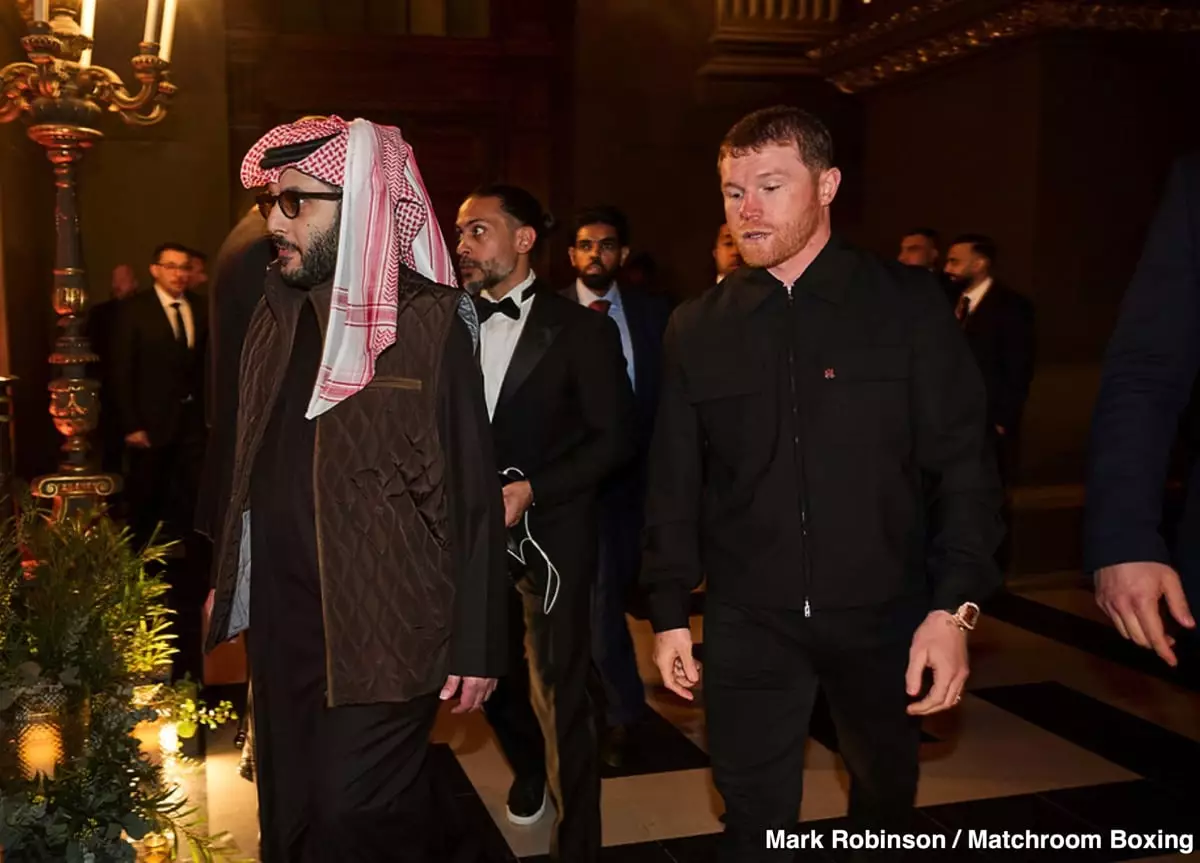As one of boxing’s most celebrated figures, Canelo Alvarez has captured titles and broken records, but it seems that the championship glory has evolved into a pursuit of wealth. Professional boxer Mikey Garcia recently made an intriguing statement about Alvarez’s financial trajectory, predicting that the famed Mexican fighter could soon see his net worth balloon to an astonishing $400 million. This figure isn’t just impressive; it’s a reflection of a significant shift in cultural values within the sport, where money often outweighs the weight of titles.
Alvarez’s record, standing at 62-2-2 with 39 knockouts, speaks volumes of his prowess in the ring. Yet, as he ramps up for his highly anticipated bouts against William Scull and Terence Crawford, the underlying motivations for his continued participation in the sport reveal a profound transformation. Mikey Garcia articulates an opinion that Alvarez is now more focused on financial gain than the prestige of titles, and perhaps even the sport itself, presenting a narrative that shakes the very foundations of boxing’s traditional values.
The Saudi Influence
What adds fuel to this fire is the rising influence of international promoters, particularly from Saudi Arabia, in boxing. Their involvement has turned fights into lavish spectacles, laden with hefty paychecks designed to entice even the most established fighters. Alvarez’s fight against IBF super middleweight champion William Scull is positioned not merely as a step toward enhanced sporting achievements, but as a strategic move orchestrated to promote an undisputed championship bout with Crawford.
The allure of a hefty payday sends a signal that the stakes are not just symbolic; they are financial. Mikey Garcia’s comments underline that the allure for Alvarez is not just personal enrichment but a move toward securing generational wealth, curated for his grandchildren and beyond. In this context, Alvarez’s motives seem to shift away from legacy-building through titles, and toward strategic business decisions that maximize income.
A Risky Gauntlet Ahead
However, Garcia cautions that achieving this financial windfall won’t come without its challenges. To reach that lofty $400 million mark, Alvarez would have to engage in a series of high-stakes fights against formidable opponents, including Dmitry Bivol, Artur Beterbiev, and David Benavidez. Each of these names invokes a sense of danger; they are not mere stepping stones but obstacles that could derail even a seasoned champion’s legacy.
Taking on Terence Crawford is already a pivotal moment for Alvarez, but facing multiple top contenders in quick succession could challenge his physical and tactical capabilities. Garcia has noted that while Crawford has shown skill, stepping into the ring with a powerhouse like Alvarez requires more than just strategic prowess. The threat of Alvarez’s power becomes a game-changer, and it may force Crawford to reconsider his game plan entirely.
Changing Dynamics in Boxing
This shift in Alvarez’s motivations raises pertinent questions about the current landscape of boxing. What does it mean for the sport when monetary gain overshadows the pursuit of glory? While the financial aspect undeniably contributes to the sport’s viability, it also runs the risk of diluting its historical significance. In days gone by, fighters battled not only for titles but for honor, pride, and a place in the annals of sporting history. Alvarez’s trajectory may symbolize a departure from those foundational ideals.
Boxing has always thrived on narratives; the underdog’s journey, the champion’s legacy, the intense rivalries. Yet as financial motives dominate discussions, these emotional stories risk becoming secondary. The question arises: will future generations of boxers engage with the sport for love, legacy, or merely for a lucrative payday?
In essence, Canelo Alvarez’s journey does not merely reflect one man’s rise; it highlights a seismic shift in the ethos of boxing. The stakes are higher than ever, and while Alvarez may stand at the forefront of this evolution, it may well serve as a cautionary tale for aspiring fighters who must negotiate their desires for both immortality in the sport and significant wealth. This intersection of athleticism and economics sets a precedent that could shape boxing’s future for years to come.


Leave a Reply